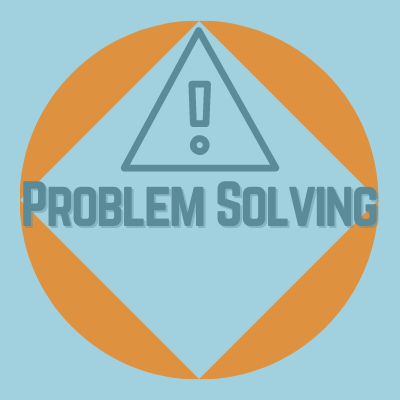Problems and Puzzles: Using puzzles to develop problem solving skills
What is Problem Solving?
Problem Solving is defined as “the process of finding solutions to difficult or complex issues”. In a more mathematical sense problem solving is “the ability to analyse mathematical situations; to plan, monitor and evaluate solutions; to apply strategies; and to demonstrate creativity and self-reliance in using mathematics” (Irish Primary School Curriculum Mathematics 1999, p.8).
Problem Solving is not only limited to solving equations or finding the solutions to mathematical questions. Problem Solving is much more – we all solve problems daily when are going shopping or deciding what to wear. Sometimes we might not even be aware of it.
Problems vs exercises:
An exercise is a challenge where you know the method and you are given practice using the method or slight variations on the method.
A problem is a challenge where it is not immediately obvious to one how to proceed. It is important to solve problems of increasing difficulty, only then is learning activated – if you keep solving problems of the same difficulty, they simply become routine exercises.
A puzzle is a problem specifically designed to challenge the solver. It may have purposeful misdirection or pitfalls built in by the puzzle maker. Puzzles have a recreational purpose and often include a contrived and amusing situation.
Why we use puzzles?
Puzzles act as a fun educational tool that can boost self-confidence and self-esteem. By including puzzles into teaching and learning at home, it offers a great opportunity for families to work together as they pool their knowledge, skills, and efforts to reach a solution. Once that solution has been reached the sense of achievement and satisfaction is gratifying and uplifting.
Puzzles can strengthen skills such as lateral thinking, innovation, deductive reasoning, open mindedness, and attention to detail; all these skills are easily transferred into the maths class and beyond as students become more adaptable and creative problem solvers.
Strategies that are often applied to solve problems are:
- Trial and error
- Change your point of view
- Work backwards
- Find intermediate points, work step by step
- Eliminate what is impossible
- Work with simplifications
- Look for patterns, symmetry
- Make a list or prepare a table of data
- Draw a picture
- Make a physical model
This list is by no means exhaustive but can be a starting point. Several of these may be applied to the same problem individually or sequentially.
Our philosophy is to guide the students to “discovering” these strategies themselves rather than handing them a toolkit. A reflective discussion should be facilitated so that students can explore and discover the many strategies used by the different groups of students.
In this way they
- Better appreciate and remember the strategies
- Build confidence
- Develop the habit of reflecting
It is important to emphasise the ultimate aim is not to solve the puzzles, but to develop a toolkit of strategies that will be useful with other problems.
Pupils that are fast at solving problems and are in the habit of tossing them aside once they have solved them may miss the opportunity to develop their skills.
It is perseverance and reflection that are important in becoming a great problem solver.

